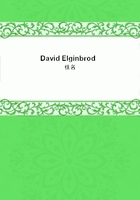
第76章
Even the remnants of stained glass in some of the windows, were half concealed by modern appliances for the partial exclusion of the light. The church had fared as Chaucer in the hands of Dryden. So had the truth, that flickered through the sermon, fared in the hands of the clergyman, or of the sermon-wright whose manuscript he had bought for eighteen pence--I am told that sermons are to be procured at that price--on his last visit to London. Having, although a Scotchman, had an episcopalian education, Hugh could not help rejoicing that not merely the Bible, but the Church-service as well, had been fixed beyond the reach of such degenerating influences as those which had operated on the more material embodiments of religion; for otherwise such would certainly have been the first to operate, and would have found the greatest scope in any alteration.
We may hope that nothing but a true growth in such religion as needs and seeks new expression for new depth and breadth of feeling, will ever be permitted to lay the hand of change upon it--a hand, otherwise, of desecration and ruin.
The sermon was chiefly occupied with proving that God is no respecter of persons; a mark of indubitable condescension in the clergyman, the rank in society which he could claim for himself duly considered. But, unfortunately, the church was so constructed, that its area contained three platforms of position, actually of differing level; the loftiest, in the chancel, on the right hand of the pulpit, occupied by the gentry; the middle, opposite the pulpit, occupied by the tulip-beds of their servants; and the third, on the left of the pulpit, occupied by the common parishioners.
Unfortunately, too, by the perpetuation of some old custom, whose significance was not worn out, all on the left of the pulpit were expected, as often as they stood up to sing--which was three times--to turn their backs to the pulpit, and so face away from the chancel where the gentry stood. But there was not much inconsistency, after all; the sermon founding its argument chiefly on the antithetical facts, that death, lowering the rich to the level of the poor, was a dead leveller; and that, on the other hand, the life to come would raise the poor to the level of the rich. It was a pity that there was no phrase in the language to justify him in carrying out the antithesis, and so balancing his sentence like a rope-walker, by saying that life was a live leveller. The sermon ended with a solemn warning: "Those who neglect the gospel-scheme, and never think of death and judgment--be they rich or poor, be they wise or ignorant--whether they dwell in the palace or the hut--shall be damned. Glory be to the Father, and to the Son, and to the Holy Ghost," &c.
Lady Emily was forced to confess that she had not been much interested in the sermon. Mrs. Elton thought he spoke plainly, but there was not much of the gospel in it. Mr. Arnold opined that people should not go to church to hear sermons, but to make the responses; whoever read prayers, it made no difference, for the prayers were the Church's, not the parson's; and for the sermon, as long as it showed the uneducated how to be saved, and taught them to do their duty in the station of life to which God had called them, and so long as the parson preached neither Puseyism nor Radicalism--(he frowned solemnly and disgustedly as he repeated the word)--nor Radicalism, it was of comparatively little moment whether he was a man of intellect or not, for he could not go wrong.
Little was said in reply to this, except something not very audible or definite, by Mrs. Elton, about the necessity of faith. The conversation, which took place at luncheon, flagged, and the visitors withdrew to their respective rooms, to comfort themselves with their Daily Portions.
At dinner, Mr. Arnold, evidently believing he had made an impression by his harangue of the morning, resumed the subject. Hugh was a little surprised to find that he had, even of a negative sort, strong opinions on the subject of religion.
"What do you think, then, Mrs. Elton, my dear madam, that a clergyman ought to preach?""I think, Mr. Arnold, that he ought to preach salvation by faith in the merits of the Saviour.""Oh! of course, of course. We shall not differ about that.
Everybody believes that."
"I doubt it very much.--He ought, in order that men may believe, to explain the divine plan, by which the demands of divine justice are satisfied, and the punishment due to sin averted from the guilty, and laid upon the innocent; that, by bearing our sins, he might make atonement to the wrath of a justly offended God; and so--""Now, my dear madam, permit me to ask what right we, the subjects of a Supreme Authority, have to inquire into the reasons of his doings?